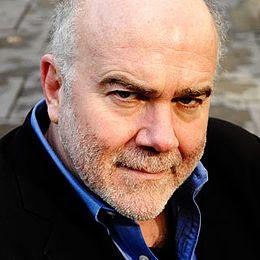

When our ancestors took up dairying, they adopted the cow, the ewe, and the goat as surrogate mothers. Milk is food for the beginning eater, a gulpable essence distilled by the mother from her own more variable and challenging diet. What better subject for the first chapter than the food with which we all begin our lives? Humans are mammals, a word that means "creatures of the breast," and the first food that any mammal tastes is milk. "What is gluten? Who made the first bread? Why do we cook meat? Is chocolate erotic?" "How does yeast work?" his science friends asked. It was here, eating suppers he'd made for friends, that he realized how little most of us know about our food.


His first job was at MIT, a science college. was in Renaissance studies - with much of the same amateur's enthusiasm. McGee had also been a word guy - his Ph.D. In the kitchen, I was a word guy, but had (I'd like to believe) the enthusiasm of someone who was discovering nonverbal skills for the first time. When I'd started working at Babbo, I edited fiction at The New Yorker.

My first job was an editor of literary magazine. What you needed to be a cook, he'd insist, was not schooling but working - in a proper top-flight kitchen - provided that when you got home, you read your McGee. I found two kinds of people there: those who had gone to culinary college, and the few who had not - including Mario himself. I’d discovered "my McGee" when, researching an article about Mario Batali, the New York chef and Food Network personality, I ended up working in the kitchen of Babbo, one of Mario's restaurants. The trappings - the dust jacket, the author photo - are a pretense to set the author loose inside, where you’ll find displays of a brilliant, unconventional mind unable to stop itself. These are not books in any conventional sense. After all, why stop now? These things, these 'editions,' look like books - they have pages, are bound, encased in hard covers, and momentarily seem like an example of a familiar category, a reference 'tool,' say, or an encyclopedia of some kind, an A to Z of everything you wanted to know about dinner - but you shouldn’t be fooled. A third edition is in the works, one certain to break the 1,000-page barrier. There are now two editions of Harold McGee's On Food and Cooking: the massive, delightfully unmanageable 684-page tome that appeared in 1984, and the larger, even more unmanageable, utterly idiosyncratic 884-page version that appeared last year. And the series continues all summer long on NPR.org. All Things Considered talks with writers about their favorite buttonhole books. All readers have them - and so do writers. Browse Our Critics' Picks, Plus Get Excerpts and RecipesĬall them buttonhole books, the ones you urge passionately on friends, colleagues and passersby.


 0 kommentar(er)
0 kommentar(er)
